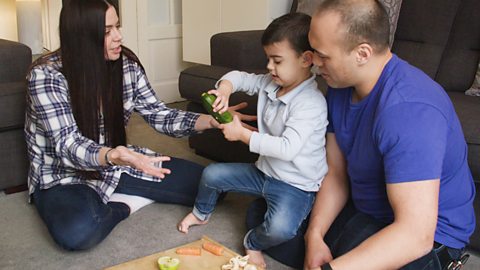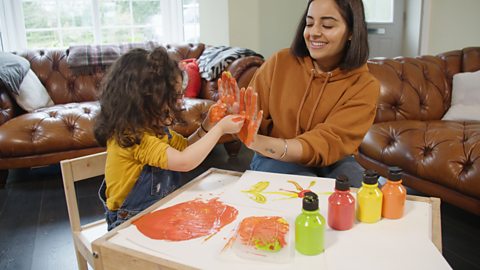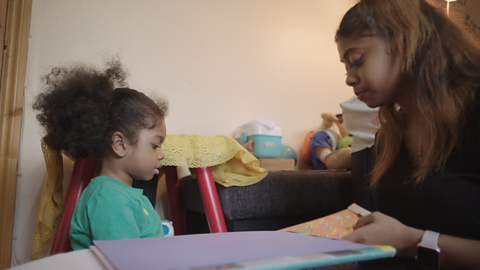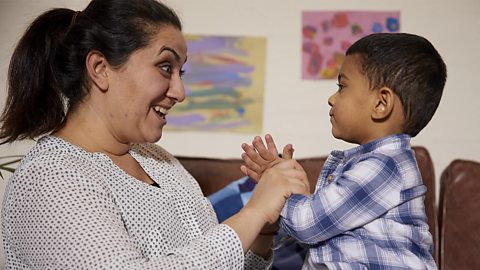Home > Activities > 3-4 years
Matching halves of a whole object is a fun way of letting your child explore objects and to encourage them to talk about them.
Test their problem-solving skills by cutting some fruits, vegetables and other household items in half. Can they match them up to make a whole?
You'll get hours of fun from this simple activity that only uses objects from around your house. Watch the video below to find out more about setting up.
Why play matching games?
- Picking out the pairs from a set encourages children's problem-solving skills.
- Asking your child to think about why things match, helps them learn the idea of 'same' and 'different'.
- Describing the items and giving them clues helps them learn words for textures, colours and shapes.
- Putting the fruit pieces back together can help develop their hand-eye coordination.
How to play the matching halves game
Take a number of safe household items and cut them in half.
Ideas for objects include fruits and vegetables of different colours and shapes, like apples, oranges, courgettes, bananas, mushrooms and carrots, or other foods like slices of bread, or even things like sponges.
Lay them out on the floor or a table in a mixed up order.
Ask your child to choose an item. Can they name the item?
When they pick up an item, can they find the one that's the same?
Give them time to work out what it goes with and match them together in the right way. Offer them plenty of encouragement.
Ask your child questions to encourage them to describe the item. What shape is it? What colour is it? Is it 'hard' or 'soft, 'rough' or 'smooth? Do they like to eat it?
Repeat until they match all the halves together.
More matching games
- Why not try a variation on the game by making your own cards for a game of matching pairs? This is adds a creative element for you and your child.
- Pairing socks is another great matching activity. It can help them learn about colours and possession and can be helpful with your housework too!
- Can your child copy actions in a game of Teddy Says?

Image caption, Matching up halves encourages children's problem-solving skills.
1 of 4






